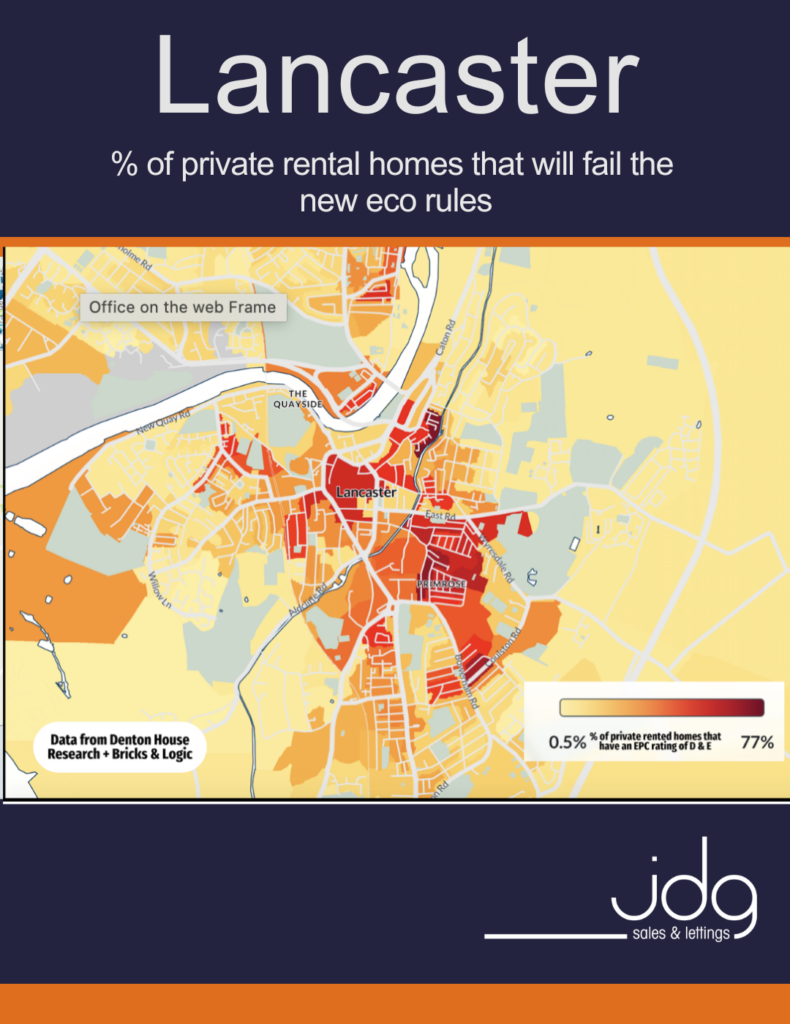
The UK rental market faces significant changes with the Labour government’s proposal to raise the minimum Energy Performance Certificate (EPC) rating for rental properties from E to C by 2030. This initiative, aimed at combating climate change and improving housing energy efficiency, presents challenges and opportunities for landlords.
Background on EPC Regulations
EPC regulations were first introduced in 2018 by the Conservative government, requiring landlords to ensure their properties met at least an E rating before renting. A cost cap of £3,500 was set to prevent financial strain, allowing for necessary improvements like insulation and heating upgrades while keeping expenses manageable.
Challenges for Lancaster Landlords
The new regulations present a more significant challenge. Upgrading from an E rating to a C rating involves considerable investment, with costs potentially reaching £30,000 per property, especially for older buildings. This expense reflects the substantial work needed, such as upgrading insulation, heating systems, and windows. For many Lancaster landlords, particularly those with older properties, the financial burden may seem daunting.
Impact on the Lancaster Rental Market
These changes could profoundly impact Lancaster’s rental market. Some landlords might find the upgrade costs prohibitive and choose to sell their properties, which could worsen the local housing shortage and drive up rents. Those who stay might pass the increased costs onto tenants, potentially offsetting the intended benefit of lower energy bills.
Energy Efficiency Variations by Property Type
Energy efficiency varies by property type. Flats and maisonettes, often newer and grouped in blocks, tend to be the most energy-efficient, typically achieving Band C. In contrast, detached, semi-detached, and terraced houses, especially older ones, generally have lower scores. The age and construction of these homes, with more exposed external walls or solid walls, contribute to their lower efficiency.
Local Context in Lancaster
In Lancaster, the situation is pressing, with 3,248 out of 5,403 private rented properties currently in EPC Bands D and E. A large portion of the local rental market will require significant upgrades to meet the new standards by 2030. I have created a heat map which shows the extent of the issue for Lancaster landlords.

Strategic Planning for Lancaster Landlords
Given these challenges, Lancaster landlords need to adopt a strategic approach. While the initial investment may seem high, upgrading properties now can offer long-term benefits. Properties with higher EPC ratings are more attractive to tenants and often have higher market values. Early investments in energy efficiency can help landlords avoid cost increases as the 2030 deadline approaches.
Moreover, there may be opportunities to reduce costs. The government has yet to finalize the new regulations, and there is hope for measures such as increased cost caps or financial support through grants, loans, or tax incentives.
Conclusion
The proposed EPC changes may seem challenging, but they also present an opportunity. By planning strategically and investing in upgrades, Lancaster landlords can enhance the value and appeal of their properties, ensuring they remain competitive in the rental market. The key is to start preparing now, seek advice, and embrace the positive changes these regulations will bring.
If you have any questions or would like me to look over your EPC, please get in touch. At JDG we are here to help. You can email me at josh@jdg.co.uk or call me on 01524 843322
Thanks for reading
Josh